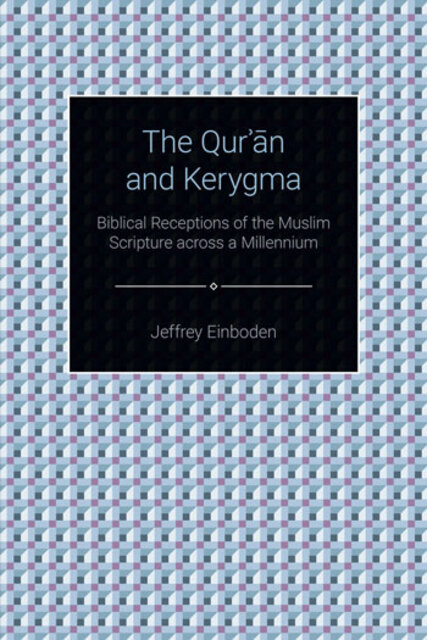
Full description
Jeffrey Einboden, Northern Illinois University
The Qur’ān’s biblical foregrounds have long formed a controversial concern within Qur’ānic Studies, with field-leading scholars debating the Muslim scripture’s complex relationship and “response” to the Judeo-Christian canon. This contentious subject has largely overshadowed, however, a reciprocal, yet no less rich, textual relationship which forms the focus of the present study. Rather than read the Muslim scripture in light of its biblical antecedents, The Qur’ān & Kerygma adopts the inverse approach, situating the Qur’ān as itself the formative foreground to pivotal acts of biblical translation, composition and commentary. The book argues, in particular, that Qur’ānic receptions have provoked and paralleled key readings and renditions of the Bible, enriching acts of creative authorship and interpretation that have contoured the legacy and language of Judeo-Christian “kerygma”.
Structured chronologically, the study’s span of more than a millennium is sustained by case studies selected from representative areas and eras, exploring innovative adaptations and translations of Qur’ānic diction undertaken by biblical authors from 9th-century Andalucía to 20th-century North America. Mirroring its subject matter, the book engages a literary critical approach, offering close-readings of targeted texts frequently neglected and never before synthesized in a single study, highlighting the stylistic, as well as spiritual, influence on exegetes of the Bible exercised by Islamic writ.
Click on book DOI to access the eBook
Click on book title to learn more
We use cookies to analyze our traffic. Please decide if you are willing to accept cookies from our website. You can change this setting anytime in Privacy Settings.
